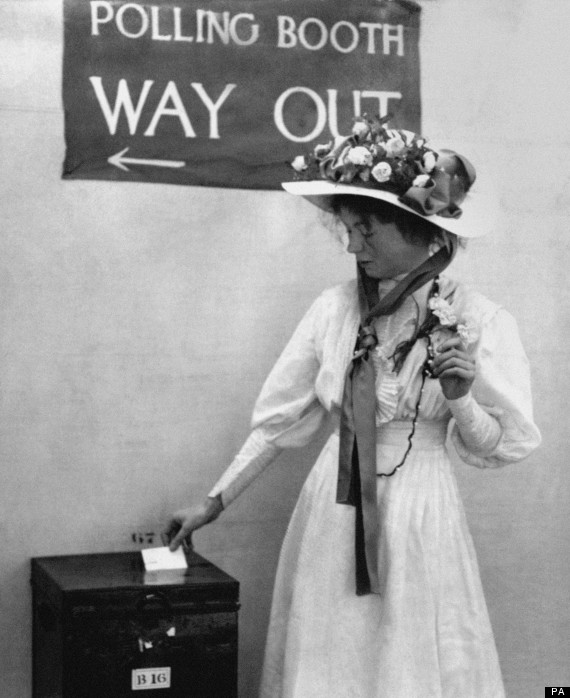On February 6th 1918
the government passed the Representation
of the People Act which gave women
with property over 30 the right to vote. The next day The Guardian newspaper ran an article in which it said:
"The adoption of women's suffrage is the signal
victory of an electoral struggle stretching over two generations and represents
the greatest triumph in our day of a generous good sense" (Guardian,
2012).
 | |
| Christabel Pankhurst in 1918 (Huffingtonpost, 2013) |
It is widely believed
that it was women's effort during the war which finally persuaded the government
to give them the vote. Not all people believed this to be the case though.
Christabel Pankhurst thought it more likely that the government was fearful of
renewed hostilities on the home front (Purvis, 1995). Recently more historians
have come to believe that there is truth to this, overturning the long-held
view that their contribution had been more hindrance than help.
There are also a number
of political factors that may have helped. Midway through the war with a
general election looming the government found itself facing a problem. Under
the existing system then men who were away fighting at the front would not
fulfill the necessary criteria to be voters as they had not been resident in
England for the 12 months preceding the election. As a result an all-party
committee drawn from the Houses of Lords and Commons was set up to try and
address the problem. Women's suffrage campaigners who had been patriotically
biding their time and quietly campaigning saw their chance and began more
loudly asking for their requests to be included for consideration in any
electoral reforms (Willis, 2006). Foremost among those lobbying were Millicent
Fawcett and the NUWSS.
Dodging the bullet?
While it was
undoubtedly a victory of sorts there is an argument to say that this was a
limited victory (Turner, 2003), given the qualification that it was only
granted to women over 30. At the same time as granting votes to a minority of
women, the franchise for men was extended to include all adult (In 1918 those
over 21) men provided they had been resident in one place for 6 months.
Ironically, the majority of women who had been most active in the war effort
were still excluded from the franchise (Willis, 2006). By agreeing to limited
emancipation, the all-male government of wartime Britain had managed to
maintain a male dominated electorate in a society with a larger female
population (Turner, 2003).
Parliament
(Qualification of Women) Act 1918
Incongruously this act
was passed later the same year allowed women over 21 to stand as Members of
Parliament (Gaye and Cracknell, n.d) though the same condition would not be
extended to the franchise until the passing of the Representation
of the People (Equal Franchise) Act 1928.
.
No comments:
Post a Comment